Out of Wonder: Poems Celebrating Poets
by Kwame Alexander, with Chris Colderley and Marjory Wentworth, illus. by Ekua Holmes
In Out of Wonder, poet and Newbery Medal-winning author Kwame Alexander (The Crossover), Chris Colderley and Marjory Wentworth pay tribute to 20 of their favorite poets--ancient to contemporary--in their own original poems emulating their heroes. It wasn't easy for the three to choose. As Alexander writes in his preface, "first, they [the poets] had to be interesting people, and second, we had to be passionately in love with their poetry."
Even readers who claim they don't enjoy poetry will be won over by these crystal-clear, mostly child-centric poems inspired by the likes of Naomi Shihab Nye, Emily Dickinson, Pablo Neruda, Billy Collins, Rumi, William Carlos Williams, Maya Angelou, Mary Oliver, Sandra Cisneros and more. If that weren't enough, the gorgeous cut-paper artwork by Caldecott Honor artist Ekua Holmes (Voice of Freedom: Fannie Lou Hamer) takes the already exuberant book to an even higher plane.
The poems are divided into three categories--"Got Style?," "In Your Shoes" and "Thank You"--and they salute the poets they honor by "adopting their style, extending their ideas and offering gratitude to their wisdom and inspiration," Alexander writes. A brief description for each section provides a mini lesson in poetry: both how it's written and how it's read. Not every poem must rhyme, after all, and some poets enjoy making up their own rules (think E.E. Cummings's lowercase letters and melded or even made-up words). In Alexander's "Jazz Jive Jam" in the Got Style? section, for example, he gives a nod to Langston Hughes by echoing the jazzy rhythms and rhymes Hughes is known for:
"On Saturday, my mama sang
a song that sounded blue.
Then Daddy made his trumpet cry--
I guess the rent is due."
In the same section, Wentworth's "In Every Season" does Robert Frost proud by picking up not only his well-loved style, but some of his beloved subjects and settings as well:
"In every season I have wandered
on paths that wind through fields and woods
beside my farm, marked by low stone walls
strung across the hills like unwound string."
"A poem is a small but powerful thing," writes Alexander. "It has the power to reach inside of you, to ignite something in you, and to change you in ways you never imagined. Poems can inspire us--in our classrooms and in our homes--to write our own journeys, to find our own voices." And inspiring these poems are. They are also uplifting, joyful, thought-provoking, quiet or loud. They speak particularly to children, with subjects like school, parents, art, dancing and listening, and are often written as imperatives: "Grab a pencil," "Make a paint box," "Pay attention," "Imagine."
All the senses are stimulated in Out of Wonder. Alexander and his co-authors invite readers to fall in love with words as lush and savory as the bits of life they capture. Fragments linger on the reader's tongue: "...while the wind passes/ around me like a warm sea." "[I]nscribing/ the language of water--/ finding new words for salt/ and starlight...." "I like my shoes when they are with/ your shoes." "Let us listen to the blue-black melody of her song...."
Visually, Ekua Holmes's bold mixed-media collages are easy to lose oneself in, with their layered patterns, pleasing textures, rich colors and brilliantly interpreted moments. Gold, ochre and green veiny paper make up the trees in "For Our Children's Children," Colderley's homage to Chief Dan George of Canada's Tsleil-Waututh Nation, while vibrant geometric patterns adorn the dancers in "Song of Uhuru," Alexander's ode to Ugandan poet Okot p'Bitek. Alexander writes of Holmes, "She was able to interpret the sense of the poem and the feeling behind it rather than trying to literally illustrate it. Poetry works on the power of suggestion, so she understood that power and harnessed it in every piece of art she created for the book."
The title of the collection originates with a quotation by renowned poet and children's book author Lucille Clifton, who wrote, "Poems come out of wonder, not out of knowing." Alexander's hope is that these 20 poems will be used as "stepping-stones to wonder, leading you to write, to read the works of the poets celebrated in this book, to seek out more about their lives and their work, or to simply read and explore more poetry." Concluding the anthology are brief but substantive biographies of every poet, as well as a list of where and when they live(d). Whether it inspires or entertains, Out of Wonder will transport readers of all ages, interests and backgrounds to new worlds. After all...
"people forget... poetry is not just words on a page... it is...
a snowflake on your tongue... a tattoo on the inside of your arm... a dashiki and a kaftan...
tripping down the streets of Lincoln Heights... shouting from the hills of Knoxville, Tennessee..."
(from "Snapshot" by Chris Colderley, honoring Nikki Giovanni)



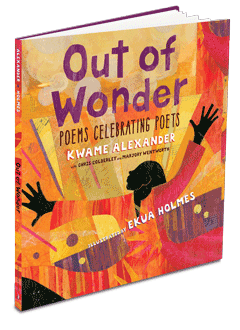
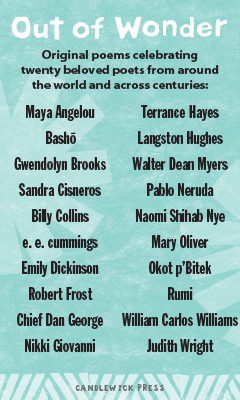
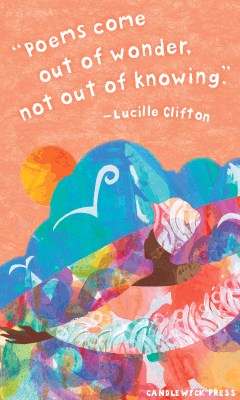
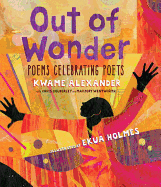

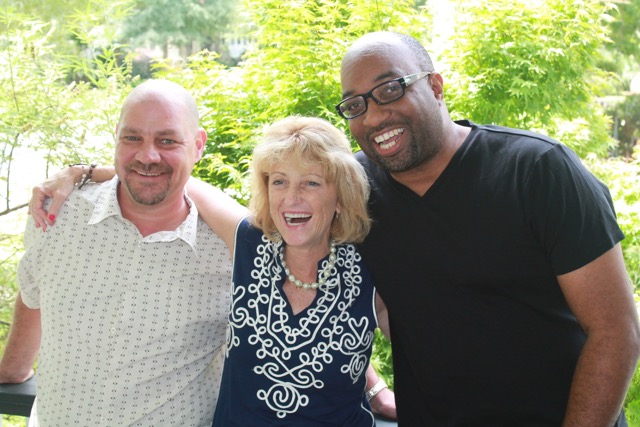
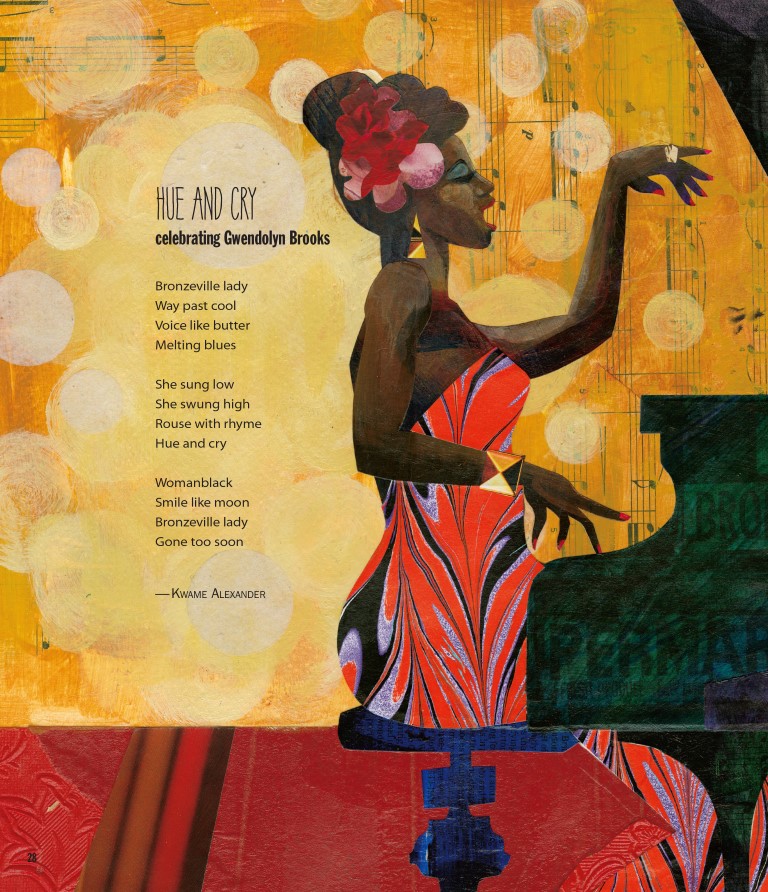 How did you choose Chris Colderley and Marjory Wentworth as your fellow poets?
How did you choose Chris Colderley and Marjory Wentworth as your fellow poets? 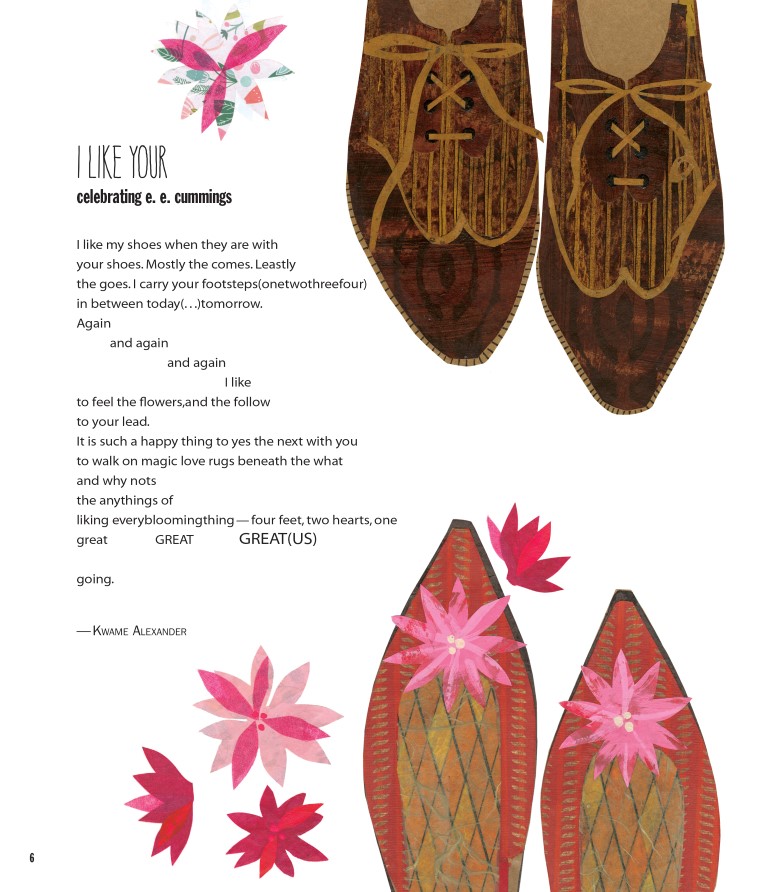 E.E. Cummings was an interesting case. My enthusiasm and inspiration for Cummings's poetry convinced the rest of us that he should be included in the book. I think "Your Shoes" is one of the most whimsical and fun poems in the whole collection.
E.E. Cummings was an interesting case. My enthusiasm and inspiration for Cummings's poetry convinced the rest of us that he should be included in the book. I think "Your Shoes" is one of the most whimsical and fun poems in the whole collection.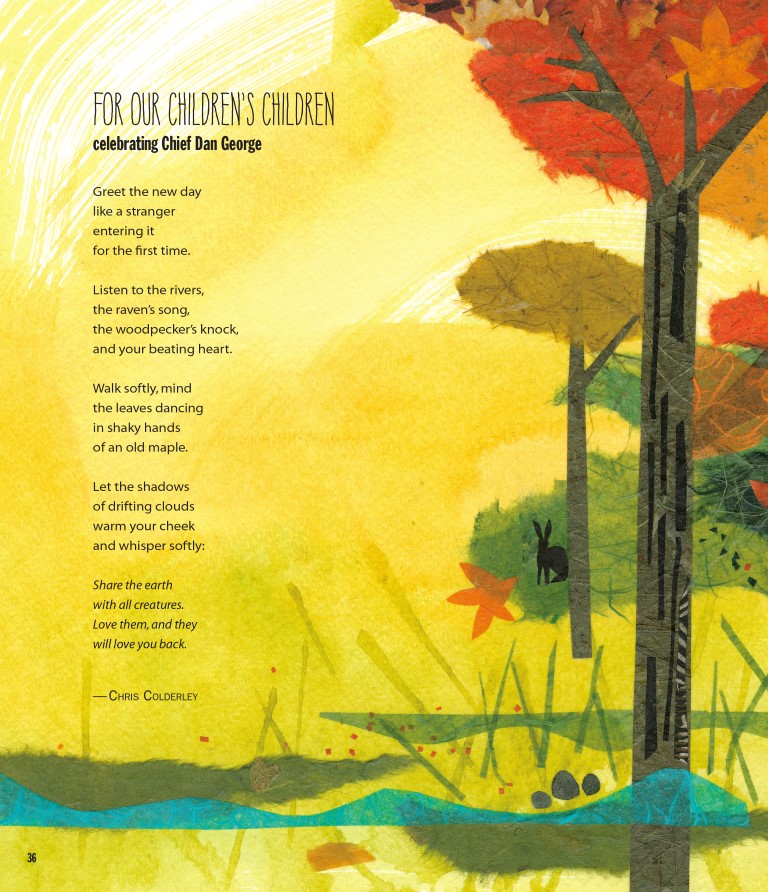 It must have been fun adopting the styles and rhythms of the poets in your book. My favorite line in your E.E. Cummings ode is, "It is such a happy thing to yes the next with you." Are there any poets who have powerfully influenced your own style?
It must have been fun adopting the styles and rhythms of the poets in your book. My favorite line in your E.E. Cummings ode is, "It is such a happy thing to yes the next with you." Are there any poets who have powerfully influenced your own style?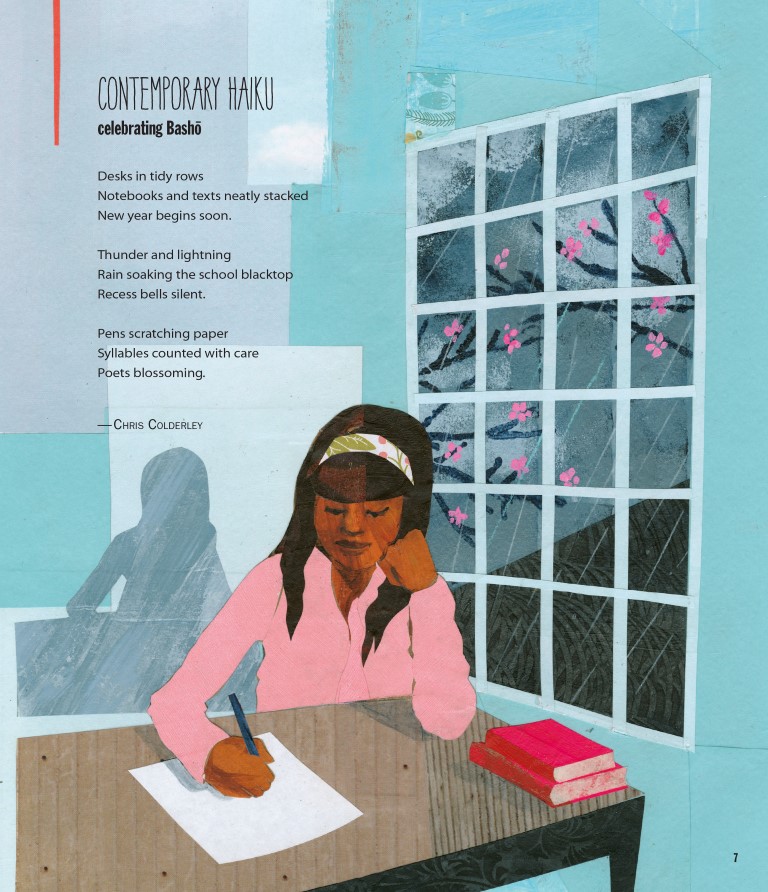 Did you collaborate with Ekua Holmes on pairing the poems with the illustrations?
Did you collaborate with Ekua Holmes on pairing the poems with the illustrations?